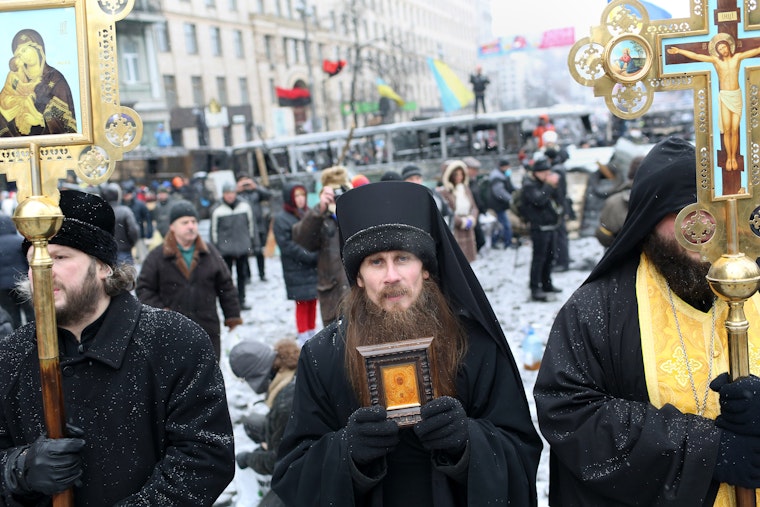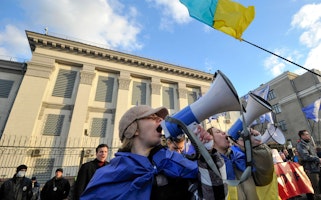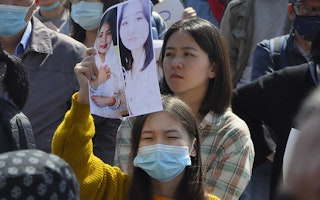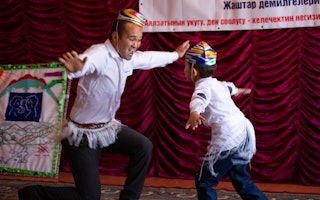What Is Illiberal Civil Society?
By Adam Hug

It will come as no surprise that the post-Soviet space is facing the same challenges around the rise of populism and nationalism that are taking place across the world, nor that it faces some particular issues of its own.
In its recent report The Rise of Illiberal Civil Society in the Former Soviet Union?, the Foreign Policy Centre brought together experts from five post-Soviet states—Georgia, Armenia, Ukraine, Kyrgyzstan, and Moldova—to examine the growing influence of illiberal and socially conservative forces. It shows how EU-backed antidiscrimination laws, support for LGBTI rights, and efforts to protect women and girls have become weaponized by opportunist politicians and groups close to the dominant religious institutions to push an anti-Western agenda.
The report also stands as a reminder that these forces go beyond Russia, which is too often spoken of as if it were the sole or primary political influencer in the region. While it is clear that Russia plays an essential role by promoting its “traditional values” agenda through political engagement, the Russian Orthodox Church, and its media outlets, it is also clear that illiberal attitudes in the region have strong local roots; and that these tensions are being exploited, rather than imported, by Russia. And the Russians are not alone in this process: The U.S. religious right is playing a similar role, too.
Overall, the social landscape across the region remains deeply socially conservative, with public attitudes towards LGBTI rights overwhelmingly hostile and showing little sign of substantive improvement, even among younger generations (except in Ukraine, where some progress has been made, particularly in the post-Maidan environment). Efforts to stop domestic violence, promote evidence-based sex education, and, in the case of Kyrgyzstan, end bride kidnapping, have prompted significant pushback.
Religious institutions have reclaimed their place at the heart of these societies, fusing their faith identity with the emerging national identities of these states and exerting significant political influence. These traditional religious institutions are the most trusted voices in their societies and form the backbone—both directly and indirectly—of campaigns against the liberalizing social measures, individual rights, and secular principles that they see as a threat to their growing dominance over public life. These debates are also being increasingly used by opportunist politicians to build their local power base or distract from corruption and abuse of state power.
It is clear, meanwhile, that there has been a significant rise in far-right and nationalist street movements—especially in Ukraine and Georgia. These “uncivil rights movements” still lack broad public support, but their political energy and rate of growth are influencing the wider politics of the region. It is notable that, in some cases, these groups have links either to factions in governments—or at least parliaments—and have attempted to increase their status by shadowing the police and attempting to assert a semi-official role in regulating public behavior. (There has also been a notable lack of convictions for criminal actions allegedly perpetrated by these groups.)
Ultimately, the report concludes that work needs to be done to ensure that ostensible “pro-Western” or “liberal” allies do not sully the public’s view of human rights principles through incompetence or corruption.
Similarly, there is a need for international pressure on governments to take the rising incidents of hate crime seriously—and to prosecute alleged offenders. There is a “movable middle” in these societies—people and organizations who are skeptical of liberal social values, but not implacably so—and it must be reached out to with persuasion. With illiberal forces across the region emboldened, the international community (and donors) will need to be persistent and creative to change the terms of the debate and strengthen human rights for women and minorities.
The Foreign Policy Centre is a grantee of the Open Society Foundations.
Adam Hug is director of the Foreign Policy Centre. His research focuses on human rights and governance, especially in the former Soviet Union.


